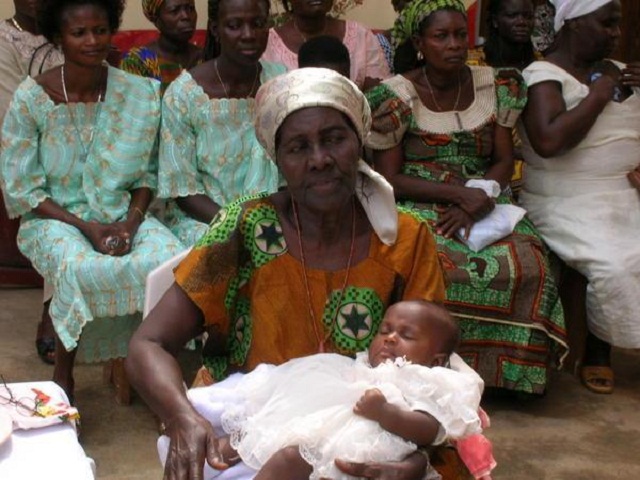The Igbos are socially and culturally diverse. Childbearing and failure to procreate denote the failure of womanhood which is why it is taken very importantly in Igbo land. It is no wonder that there are unique Igbo birth traditions that are followed very meticulously in Igbo land.
With civilisation, there have been slight changes in some Igbo traditions. However, many of the practices have remained including our birth traditions. Among them, is the care given to a woman during pregnancy and postpartum. Here are five Igbo birth traditions and how they’re done:
In rural traditional Igbo society, pregnancy is not announced until after twelve weeks of gestation when they would then enlist the services of the traditional birth attendant (TBA) for care and guidance.
The role of the TBA usually reflects the culture and social structure of the community. In Igbo communities, a TBA is in a way ‘professional’ and may be called upon anytime the need arises.
Read Also: Is Bride Price Actually Appreciating In Igbo Land?
Omugwo (postpartum care)
Omugwo is a vital and important aspect of Igbo birth traditions. It takes into consideration that a new mum might be overwhelmed and needs help and care after birth.
In the Igbo tradition, the mother, mother-in-law or any close female relative of the family comes over to take care of the new mother and her newborn for at least 6 months. The Igbos have kept this tradition in practice for ages, and it has remained intact. It is also present in many other African cultures.
During omugwo, the visiting mother is in charge of preparing spicy yam pepper soup, hot water massages and taking care of the baby at night to afford the new mother some quality sleep.
The spicy pepper soup and hot water massages combine to help loosen and wash out blood clots from the new mum’s body. Overall, this is a great way for the visiting mother to help the new mum deal with anxiety, postpartum depression or any other issues that may arise.
In recent times, this has been replaced by modern medicine, physiotherapy, and Postpartum A.I (Artificial intelligence) which includes massage machines, applications, and tv shows.
Nzu (paying homage)
When the news of childbirth breaks, delivered safe and sound, the child is welcomed into the world with much joy and jubilation. The women will gather, begin to sing loud and joyful songs, after which they will go in the house and rub Nzu on their necks as a sign of purity of heart.
It has now been replaced with the use of white powders instead.
Ikuputanwa or igu nwa’ aha (Naming Ceremony)
The naming ceremony is usually on the 7th to the 12th day after the birth of the child. This is a way of formally presenting the child to his people, such as family, friends, kinsmen, and the entire community. In Igbo land, the paternal grandparents serve as the officials, whose duty it is to hand the child to his or her father. The breaking of kola nuts then takes place and prayers are offered on behalf of the child. After this, pouring of wine libation to the gods follow. The prayers are a way of asking the gods to guide the child on his or her journey through life.
However, in recent times this tradition has been adapted. Now, people take the ceremony to church and have the pastor preside over it.
Ibe Ugwu (Circumcision)
The Ibe Ugwu is an ancient Igbo tradition that involves the removal of the foreskin covering the penis.
In the past, this practice extended to girls, but the Igbo people have stopped the practice in many Igbo communities. For most people Ibe Ugwu is done three days after birth, while some do it on the 8th day after birth and in adulthood and some don’t do it at all.
Ikpo Oku Nwa (Pot Buying)
Another Igbo tradition tied to childbirth is the Ikpo Oku Nwa. During this, people send pots or give the mother some money to buy a pot for the newborn. If the new baby is a girl, some men may send money to the mother. This signifies their intention to marry the girl when she grows up. With times changing, this particular custom is hardly practised in Igbo communities.
The Igbo people have a lot of beautiful and interesting traditions that have been existent for ages. However, as time goes on more cultures and traditions may change, form or fade away. Usually, it’s either because they are harmful or they simply fail to transmit to future generations.
THE EASTERN UPDATES
























